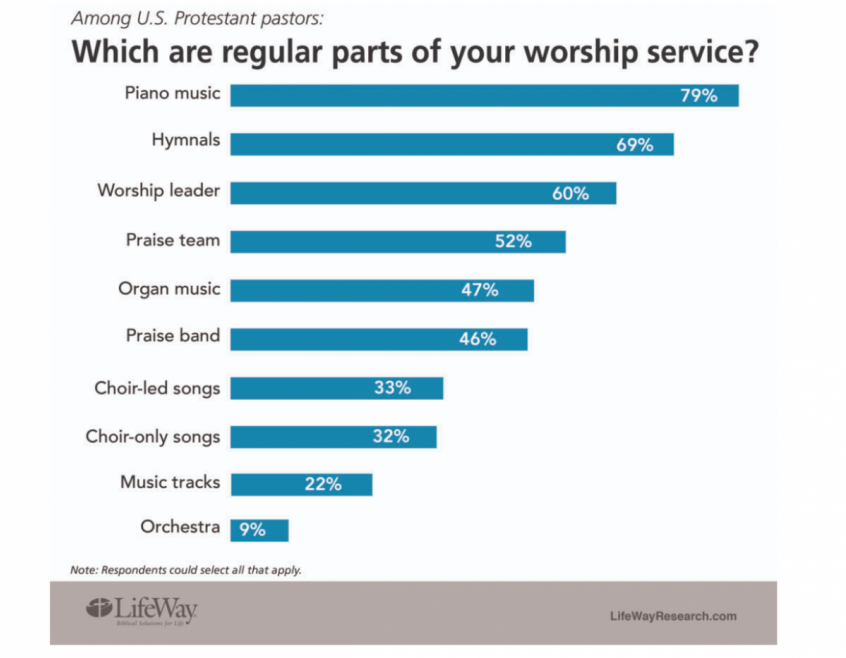
Despite the meteoric rise of contemporary Christian music in the last couple of decades, a new study by LifeWay reveals that the traditional hymn is still a cherished part of church worship.
While CCM has become the fashion in many churches across the Western world, the LifeWay study of 1,000 Protestant pastors found that a majority continue to retain hymns in their musical repertoire.
Over two thirds (69%) of the pastors surveyed said that hymnals were regularly used in their churches, second only to piano music.
Scott McConnell, executive director of LifeWay Research, said: "Like printed books, hymnals are far from obsolete. Individuals and groups are still leading congregations in singing together each week."
The survey also found that worship is one area of church life where there is little conflict between the pastor, worship team and congregation.
Only 15% of the pastors said that their congregation's worship preferences were the biggest challenge facing their church and only 5% of churchgoers said they would change churches if the worship style changed.
While many churches have a worship leader or team, the survey found that pastors often have a hand in the music being played each Sunday, with 71% saying they collaborate in the worship planning.
The survey pointed to healthy collaboration between most pastors and their worship leaders, with 92% of the pastors saying their relationship was characterised by mutual respect.
While once upon a time, the sound of the organ would have wafted from every church in the country, today it's more likely to be the piano.
Over three-quarters (79%) of pastors said the piano was a regular part of their church's worship, while Pentecostals were the denomination most likely (82%) to have a praise band.
That's not to say that the organ is obselete either, though, with nearly half of the pastors surveyed (47%) saying that the organ was a regular part of their worship service.














